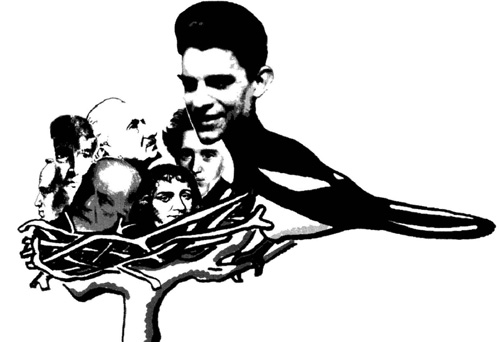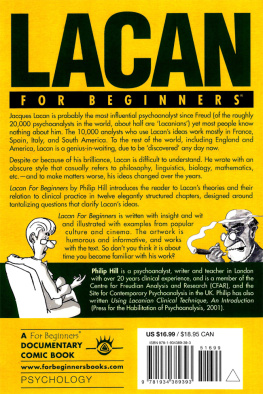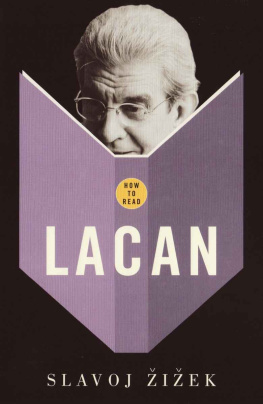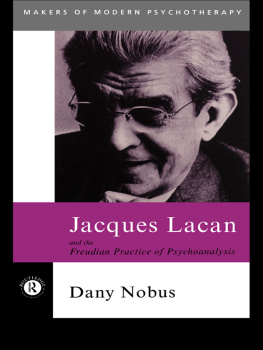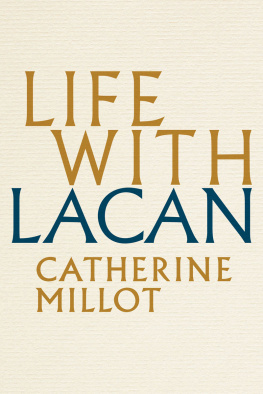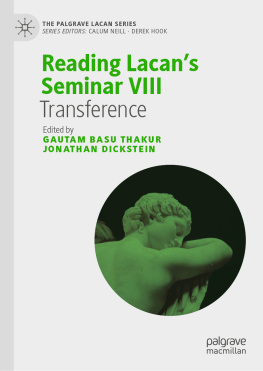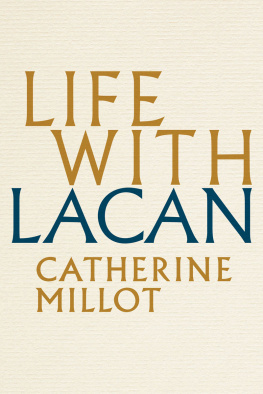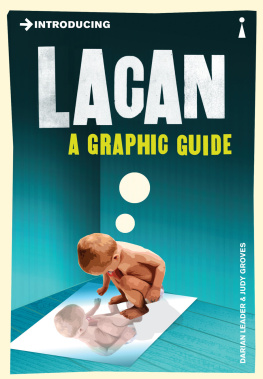For Beginners LLC
155 Main Street, Suite 211
Danbury, CT 06810 USA
www.forbeginnersbooks.com
Text: 1997, 1999 Philip Hill
Illustrations: 1997, 1999 Philip Hill
Cover Art: 1997, 1999 David Leach
All rights reserved. No part of this publication may be reproduced, stored in a retrieval system, or transmitted in any form or by any means, electronic, mechanical, photocopying, recording, or otherwise, without prior permission of the publisher.
A For Beginners Documentary Comic Book
Originally published by Writers and Readers, Inc.
Copyright 1999
Cataloging-in-Publication information is available from the Library of Congress.
eISBN: 978-1-939994-13-4
For Beginners and Beginners Documentary Comic Books are published by For Beginners LLC.
v3.1

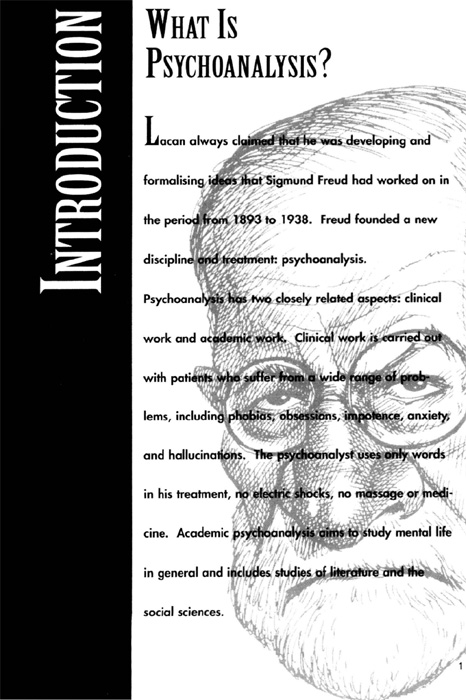
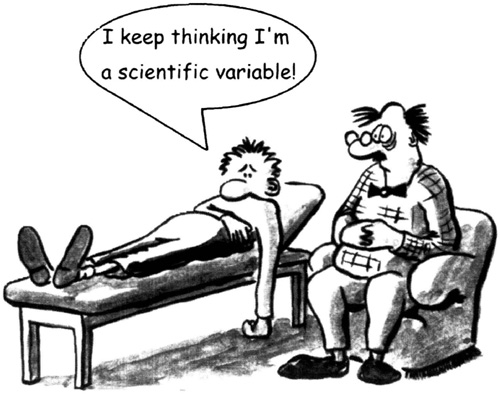
P sychoanalysis has many links with other disciplines. While a close study of Lacan's theories demands a study of logic, science, philosophy, literature and other disciplines, Lacan's ideas were inspired above all by the clinic, by his work and experience with his clients. His theories, which some claim are overly intellectual, are only attempts to make sense of what he witnessed in his clinic, working with clients.
DIVISIONS AND FACTIONS IN PSYCHOANALYSIS
L acan has probably been the most important and influential psychoanalyst since Freud. Worldwide there are some 20,000 psychoanalysts, that is people who work broadly in the Freudian tradition (this excludes followers of Jung). Roughly speaking psychoanalysts are equally divided into two camps: those influenced by Lacan's work, and those more or less loyal to the ideas of Ego Psychology and the International Psycho-Analytic Association.
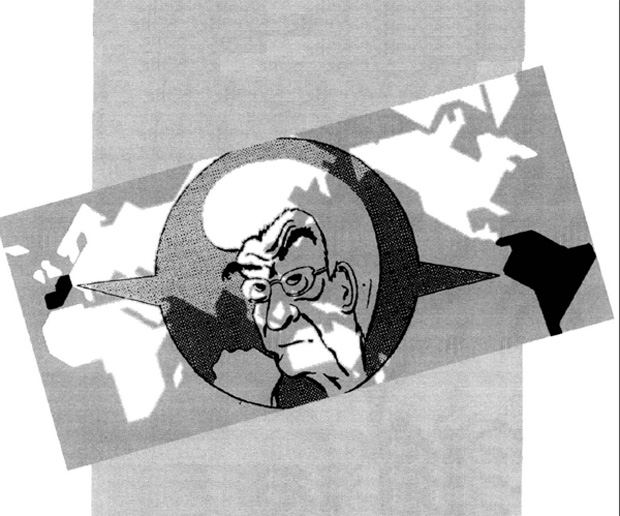
The 10,000 psychoanalysts working with Lacan's ideas are mostly in France, Spain, Italy and South America. The other 10,000 influenced by the International Psychoanalytic Association are dominant in England and North America, where Lacan's influence has been felt least.
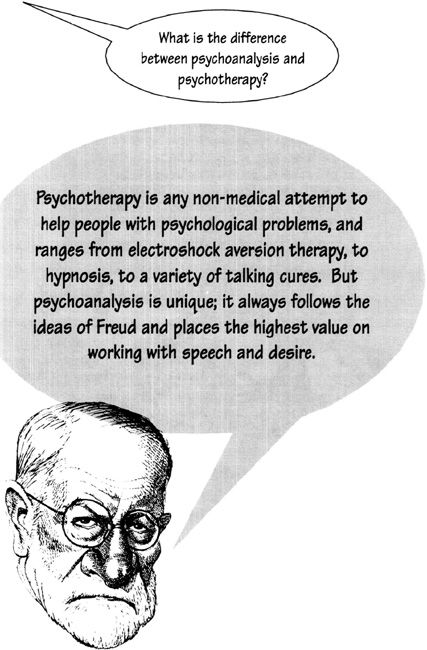
CHAPTER 1
WHO WAS LACAN?
He became a skinny but handsome intellectual and a dandy. He was exempted from military service because of his physique.
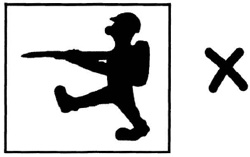
Lacan underwent medical and psychiatric training, a personal psychoanalysis and became a man of charisma,
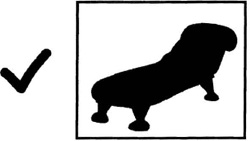
J acques Lacan was born to a middle class French Catholic family in 1901, seven years after Freuds work was first published. Lacan would usually have his nose in a book while other boys were playing football.
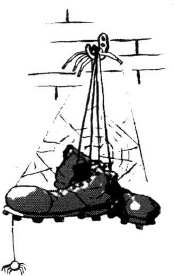
the lover of many women,
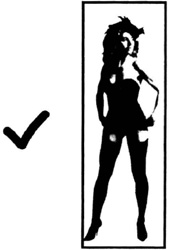
and an atheist.
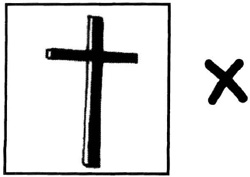

Lacans difficult lectures were attended by many leading psychoanalysts and intellectuals. There would often be lengthy silences, in between Lacan writing obscure symbols and formulae on a blackboard. Listeners were often baffled by his complicated word plays and enigmatic puns, and by his use of German, Hebrew, Chinese and Ancient Greek. Even French speakers attending his talks were not sure if he was speaking French or not. Now there is a cult following of Lacan, with some thirty different camps of bickering followers, each claiming loyalty to the master.
Most of Lacans work was not published or otherwise written down; he simply spoke it at his weekly seminars and lectures.
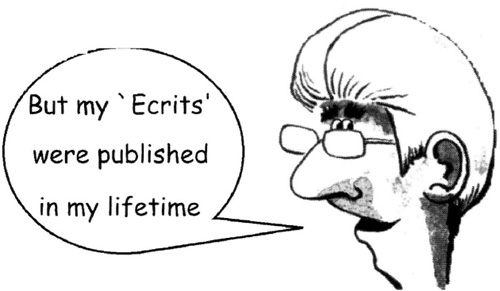
Some of Lacans tape-recorded talks have been published and translated, but much of his work remains unpublished or untranslated; it circulates only in samizdat form, as unofficial transcripts of the seminars. Lacan scorned publication, pronouncing it as poubellication, from the French poubelle, for garbage can.
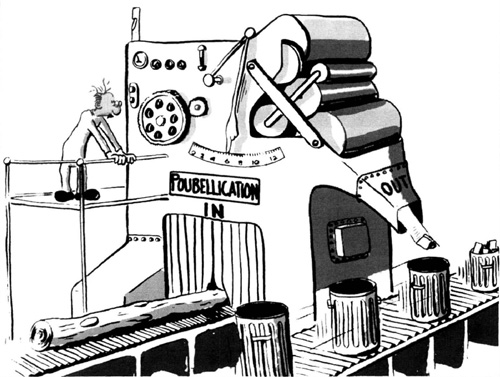
The clinical and theoretical innovations introduced by Lacan (such as his infamous clinical sessions of variable length that could last any time between five minutes and an hour, instead of the conventional fifty minutes) produced splits in the psychoanalytic movement, and finally led to his being expelled from the International Psychoanalytic Association in 1953, and to the formation of his own psychoanalytic school.
Lacan was never comfortable with the relationship between institutions, including psychoanalytic training schools, and psychoanalysis as a clinical practice. The problem arises because the psychoanalyst helps his patients question their own values and issues, without the analyst having an investment in a particular answer. The psychoanalyst should not bring his own prejudices to bear on his patients questions. Lacan thought that this special sort of space, in which the patient can speak openly, is essential in psychoanalysis, but very difficult to encourage and promote through an institution because of the kinds of identification and ideals of authority that tend to operate within institutions. Arguing that the institutionalization of psychoanalysis was fraught with dangers for clinical practice, he even took the extraordinary step of dissolving his own psychoanalytic school in 1980, the year before his death.
Lacans work is difficult to study; not only because he lectured and wrote with a very complicated style, but also because he introduced many new ideas and concepts that are dependent on one another. Studying his work is made more difficult because many of these ideas changed during the course of his lifetime.
Lacan was also an intellectual magpiehe took and adapted for his own ends many ideas from other fields, including linguistics, mathematics, literature, philosophy and science.
